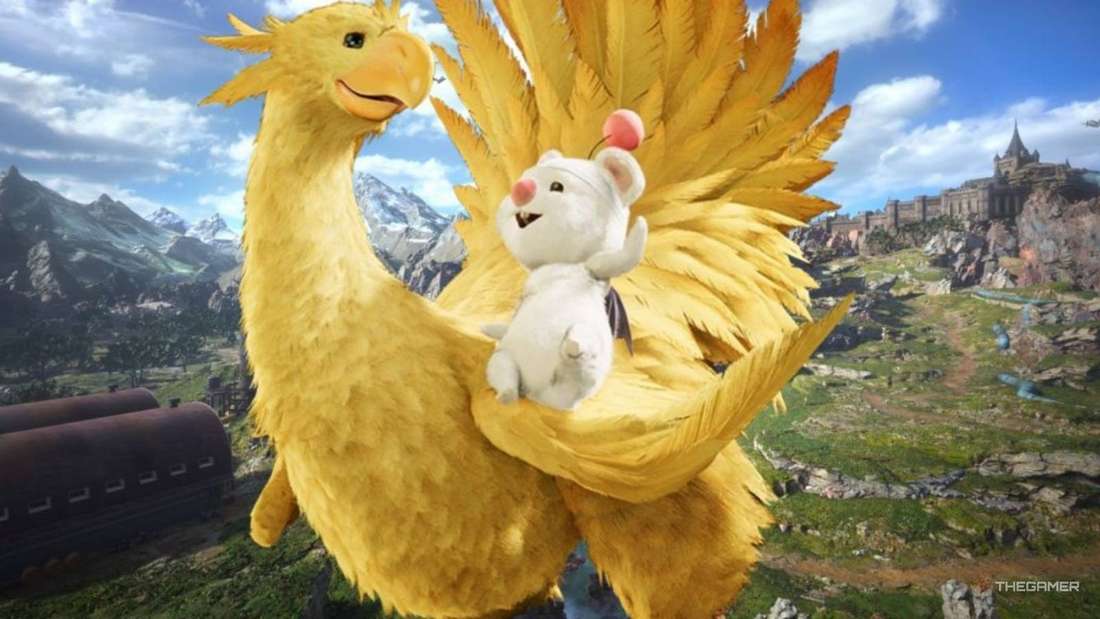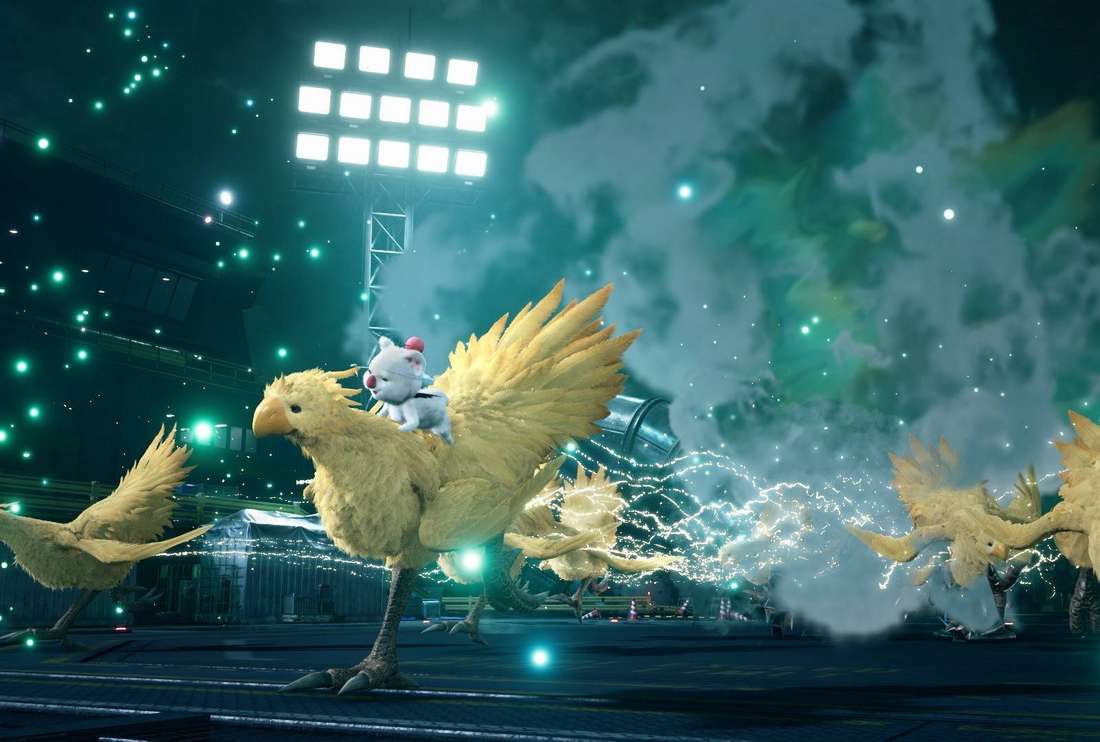Human Creativity Triumphs: FF7 Remake Trilogy Director Naoki Hamaguchi on Why AI Will Never Surpass Game Developers
Popular Now
 Free Fire
Free Fire
 God of War Ragnarök
God of War Ragnarök
 Gacha Club
Gacha Club
 The Legend of Zelda
The Legend of Zelda
 Call of Duty
Call of Duty
 Brawl Stars
Brawl Stars
 Roblox
Roblox
 Genshin Impact
Genshin Impact
 Valorant
Valorant
 R.E.P.O
R.E.P.O 
The global video game development industry is at a critical juncture, facing increasing discourse around the integration of Artificial Intelligence (AI) into the creative pipeline. Amidst this technological evolution, Naoki Hamaguchi, the esteemed Director of the hugely successful Final Fantasy VII Remake trilogy—including the upcoming final installment—has weighed in with a powerful statement, asserting his strong belief that human creative professionals will always be capable of producing superior games to any machine learning algorithm.
Hamaguchi’s comments come at a time when Square Enix, the publisher behind the monumental JRPG series, has expressed an organizational interest in exploring AI to enhance development productivity and streamline certain tasks. However, the director’s perspective, highlighted in recent interviews, strongly prioritizes the irreplaceable value of human ingenuity, particularly in the core, creative elements of a title with a complex, emotionally resonant narrative like Final Fantasy VII.
The Irreplaceable Value of Human Storytelling and Emotion
The debate surrounding AI in gaming often centers on its potential to handle repetitive, time-consuming aspects, such as generating textures, placeholder assets, or basic Quality Assurance (QA) testing. While this is seen as a legitimate avenue for boosting efficiency and lowering development costs—a critical factor for projects with a high Cost Per Click (CPC) profile—Hamaguchi is resolute when it comes to the art and soul of game creation.
“However much AI might try and intrude and take part in the creative side of things, we would want to be good enough creators that we could do better than AI,” Hamaguchi stated. This sentiment underscores a core philosophy: that the depth, emotional impact, and innovative core of the best video game experiences stem from uniquely human perspective and lived experience.
- Creative Depth: Human developers possess the capacity for nuanced storytelling, complex character development, and theme deployment that an AI, fundamentally a pattern-matching tool, currently cannot replicate.
- Emotional Resonance: The ability to evoke powerful emotions in players—joy, sadness, nostalgia, or anticipation—requires a deep understanding of the human condition, which is arguably beyond current AI capabilities.
- Unpredictable Innovation: Truly groundbreaking gameplay mechanics and artistic direction often arise from unpredictable flashes of human insight, not from the synthesis of existing data.
For a game like the FF7 Remake trilogy, which is built on reinventing an established, beloved narrative while introducing significant new plot developments and an evolving combat system, the need for human creative control is paramount. Fans expect a high-quality gaming experience that respects the legacy while delivering something fresh and compelling—a tightrope walk that demands the judgment of a skilled human director.
 Navigating the Future of AI Integration at Square Enix
Navigating the Future of AI Integration at Square Enix
While Hamaguchi remains firm on the creative ceiling of AI, he is also part of a larger organization, Square Enix, that has acknowledged the potential of Generative AI. The company’s stance is one of active consideration, seeking to utilize cutting-edge technology primarily for increased productivity and potentially for marketing purposes. This mirrors a common trend across the global technology and entertainment sectors, where AI is viewed as a powerful tool rather than a replacement for core creative talent.
The distinction is crucial: using AI to accelerate the creation of minor assets or to assist with translation is a clear benefit to the ROI (Return on Investment) of a massive AAA project. However, entrusting the design of core story beats, the complex interdependencies of the Materia system, or the choreography of a massive boss battle to an algorithm could risk an experience that feels sterile or derivative.
Naoki Hamaguchi’s Vision for Development:
- Focus on Mastery: The core development team must strive to be “good enough creators” to continually surpass machine output.
- AI as an Assistant: If utilized, AI should handle the “tedious tasks” of development that are resource-intensive, freeing up human talent for high-value creative work.
- Protecting IP Integrity: Maintaining the artistic vision and narrative integrity of the Final Fantasy Intellectual Property (IP) is a non-negotiable priority.
This perspective provides a balanced, forward-looking view for the gaming industry: embracing technological assistance without sacrificing the human element that delivers a truly immersive gaming experience and drives consumer spending on premium titles.
The Impact on the Final Fantasy VII Remake Trilogy’s Conclusion
The Director’s commitment to human-led game design has direct implications for the upcoming third and final part of the FF7 Remake trilogy. Given the complex narrative pivots and the pressure to deliver a satisfying, climactic conclusion to one of gaming’s most revered sagas, player confidence in the team’s hands-on approach is incredibly high. The team’s emphasis on refining the game’s pacing and structure—a detail Hamaguchi recently elaborated on to quell fan concerns about content cuts—shows a focus on meticulous, human-driven refinement.
The Development Trajectory:
- Meticulous Pacing: Ensuring the final story progression moves at a satisfying pace and delivers an engaging experience from start to finish.
- High-Quality Content: Reassuring fans that the trilogy’s finale will be a proper, high-quality send-off that rewards their long-term investment.
- Synergy and Team Strength: Hamaguchi has often spoken about the “bonds” and “relationship” built within his development team, suggesting a highly collaborative, human-centric approach is the foundation of the project’s success.
In a world increasingly dominated by automation chatter, Hamaguchi’s firm belief acts as a powerful reminder that creative software development, especially in the nuanced, deeply emotional realm of JRPGs, remains a fundamentally human endeavor. The market for premium games thrives on originality and emotional connection, factors that human creators are still best equipped to deliver, driving high customer satisfaction and strong sales performance in the highly competitive landscape of modern entertainment tech.
The message from the director of one of the most highly anticipated game trilogies is clear: while AI may optimize the nuts and bolts, the heart of an unforgettable game will always beat with the pulse of its human creators. This commitment to traditional, high-touch development standards bodes well for the conclusion of Cloud’s epic journey and sets a benchmark for the future of game design innovation.








 Navigating the Future of AI Integration at Square Enix
Navigating the Future of AI Integration at Square Enix